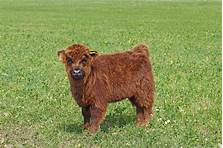Do Servals Make Good Pets?
Servals are beautiful and fascinating animals that can make captivating pets for experienced owners. However, it's essential to understand their unique needs and whether they are a suitable match for your lifestyle and living conditions before bringing one home.

Serval Characteristics and Temperament
Servals are medium-sized wild cats with long legs, slender bodies, and spotted coats. They are known for their agility, curiosity, and playful nature. Here are some key characteristics of servals:
1. Intelligence: Servals are intelligent and curious animals that enjoy learning new things. They can be trained to perform tricks and behaviors and may even learn to open doors or cabinets.
2. Activity Level: Servals are highly active and energetic animals that require plenty of space to run, jump, and play. They enjoy climbing, exploring, and engaging in interactive activities.
3. Vocalization: Servals are generally quiet animals, but they may communicate through chirps, growls, and hisses. They may also make distinctive noises to express excitement, curiosity, or distress.
Can Servals Be Domesticated?
While servals can be tamed to some extent, they are not domesticated in the same way as cats or dogs. They retain their wild instincts and behaviors, which can make them unpredictable and challenging to handle. Even with extensive socialization and training, servals may still exhibit untamed tendencies.
Challenges of Owning a Serval
There are several challenges associated with owning a serval as a pet, including:
1. Large Size and Strength: Servals can grow to be over 50 pounds and possess powerful claws and teeth. They can inflict serious injuries if they feel threatened or provoked.
2. Habitat and Space Requirements: Servals require a large and secure enclosure that allows them to roam, climb, and play. They need access to outdoor spaces where they can run and explore under supervision.
3. Diet and Nutrition: Servals have specific dietary needs and must be fed a balanced diet of raw or cooked meat, bones, and organs. They may also require supplements to ensure they receive all the necessary nutrients.
4. Socialization and Training: Servals need regular socialization and training to help them learn appropriate behaviors and boundaries. They can become destructive or aggressive if not properly socialized or trained.
Is a Serval the Right Pet for You?
Before deciding to own a serval as a pet, ask yourself these questions:
1. Do you have the experience and knowledge to care for a wild cat?
2. Can you provide a safe and secure environment that meets the serval's needs?
3. Are you prepared to deal with the challenges of owning a serval, including potential aggression, destruction, and the need for specialized care?
4. Do you have the resources and commitment to provide lifelong care for a serval, which can live up to 20 years?
If you answered "no" to any of these questions, owning a serval may not be the right choice for you. It's important to carefully consider all aspects of serval ownership before making a decision.
Declaration: All article resources on this website, unless otherwise specified or labeled, are collected from online resources. If the content on this website infringes on the legitimate rights and interests of the original author, you can contact this website to delete it.





